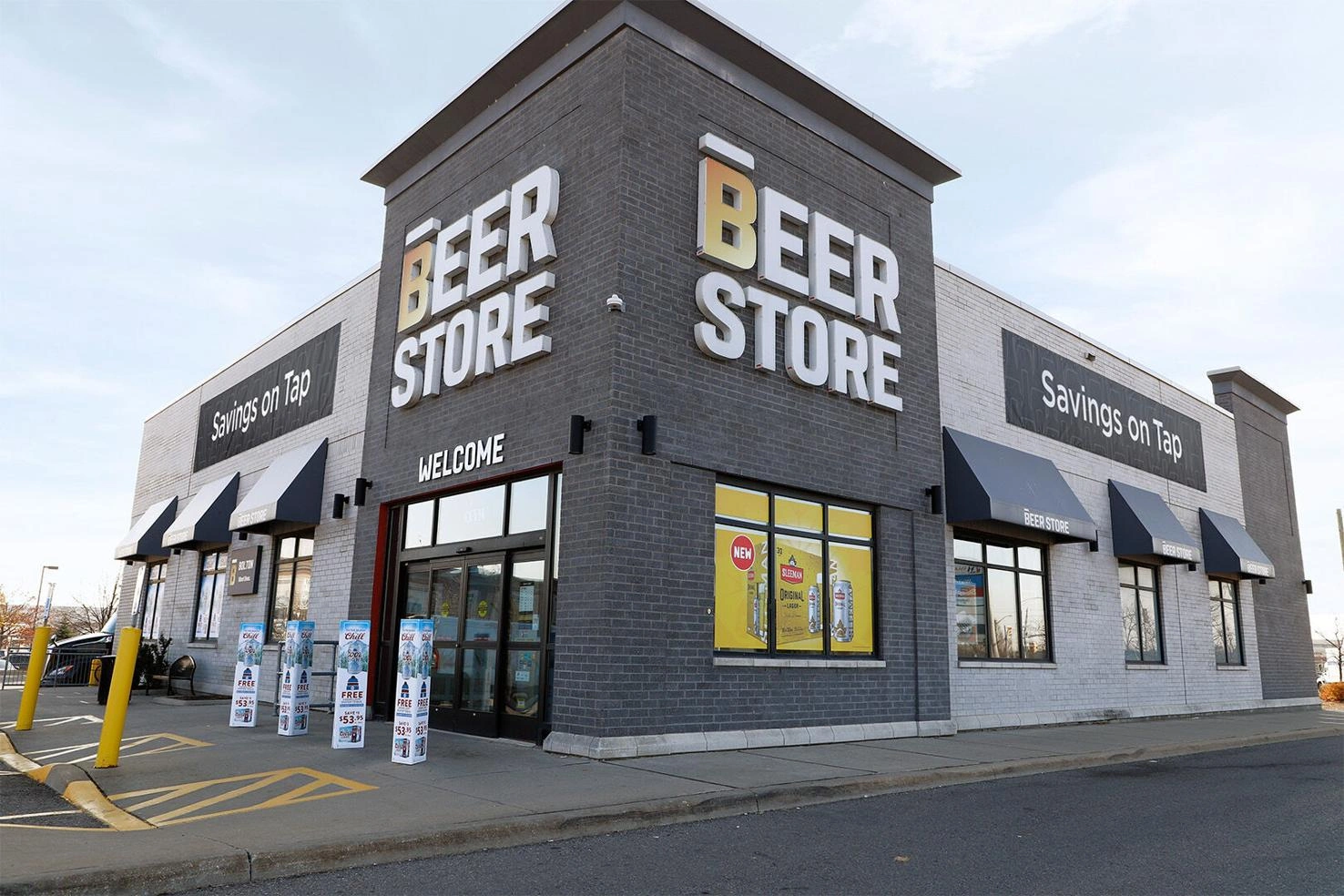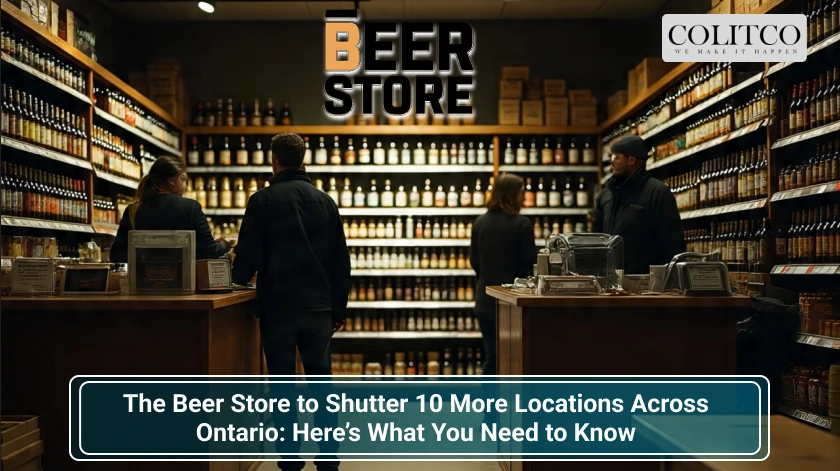Ontario’s beer retail landscape is about to change again, this time with another round of closures that will see 10 more Beer Store locations shutting their doors for good on September 14.
The Beer Store, which has long held a near-monopoly on beer sales in the province, announced the latest closures on Monday. This move is part of a broader downsizing strategy that has now affected 83 locations since May 2024, as the retailer responds to a dramatically shifting alcohol market in Ontario.

The Beer Store will close another 10 Ontario locations on Sept. 14.
Which Stores Are Closing?
The latest round of closures will affect both urban and rural communities across the province. Here’s the complete list of stores set to close by the end of business on September 14:
- Toronto: 636 Greenwood Ave.
- Scarborough: 4479 Kingston Rd.
- Unionville: 4681 Hwy. 7
- Burlington: 2020 Appleby Line
- Ottawa: 1910 St. Laurent Blvd.
- Hamilton: 229 Dundurn St. S.
- Ridgetown: 90 Erie St. S.
- Sioux Lookout: 41 Front St.
- Deep River: 33225 Hwy. 17
- Northbrook: 12334 Hwy. 41
Why Are These Stores Closing?
According to Ozzie Ahmed, The Beer Store’s Vice President of Retail, the closures are a direct response to Ontario’s changing beer market. Since the province expanded alcohol sales to grocery and convenience stores, competition has intensified, forcing The Beer Store to rethink its operations.
“The retail market for beer is evolving in Ontario, and for us, that means making some difficult decisions,” Ahmed said in a statement. “Closing stores is never easy, and we don’t take these decisions lightly.”
The company states that it will support its employees throughout the transition, in accordance with existing agreements with its union partners.
‘Not an easy decision’: The Beer Store is closing 10 more stores in Ontario, including 5 in the GTAhttps://t.co/SHIUR8T7HY pic.twitter.com/k3LQrsJ83c
— CP24 (@CP24) July 14, 2025
Union Calls Out Job Losses and Service Cuts
The closures have sparked immediate concern from United Food and Commercial Workers (UFCW) Local 12R24, the union representing Beer Store workers. John Nock, the union president, called the news “devastating” for employees and the communities they serve.
“These closures mean fewer good-paying union jobs and fewer places for Ontarians to buy beer at stable, regulated prices,” Nock said.
He also pointed out another unintended consequence: the potential weakening of Ontario’s beer container return system. The Beer Store currently handles over 1.6 billion empty containers annually, and the closures could make returns more difficult for many residents, especially those in smaller towns.
“Depending on where you live, people might now have to drive long distances just to return their empties,” Nock warned. “This isn’t about creating new jobs, it’s about cutting the ones that already exist.”
What About Empty Bottle Returns?
Despite the closures, The Beer Store is urging customers to continue participating in the province’s empty return program. The company processes billions of cans and bottles annually, helping to reduce environmental waste.
Starting January 1, 2026, all grocery stores that sell alcohol will be required to accept empty returns as part of Ontario’s push to modernise retail alcohol sales. Until then, customers can use The Beer Store’s website or the provincial online locator to find the nearest location still accepting returns.
More Closures Coming?
This is not the first wave of shutdowns. In June 2025, The Beer Store announced that it would close 10 additional locations on August 24, including stores in Toronto, Richmond Hill, and communities in northern Ontario, such as Atikokan and Blind River.
With consumer habits shifting and more retail competition on the rise, industry experts say The Beer Store may not be done scaling back just yet.
A Changing Beer Market
For decades, The Beer Store operated as Ontario’s primary beer retailer, but its dominance has been steadily eroding since the province began loosening alcohol sales regulations. Today, beer is available in more grocery stores, convenience stores, and specialty retailers than ever before.
Proponents of the expanded retail model argue it offers consumers greater convenience and more choice. However, critics worry it could lead to higher prices, reduced recycling infrastructure, and the loss of unionised retail jobs.
What’s Next?
For customers, the closures mean fewer Beer Store locations, longer drives for returns, and fewer options for purchasing certain beer brands exclusive to the chain.
For workers, the impact is personal. Many now face job uncertainty as the company continues its downsizing.
As Ontario’s retail alcohol market continues to evolve, more changes could be on the horizon. For now, affected communities are left to adjust to a new reality: fewer Beer Stores and a very different beer-buying experience.












